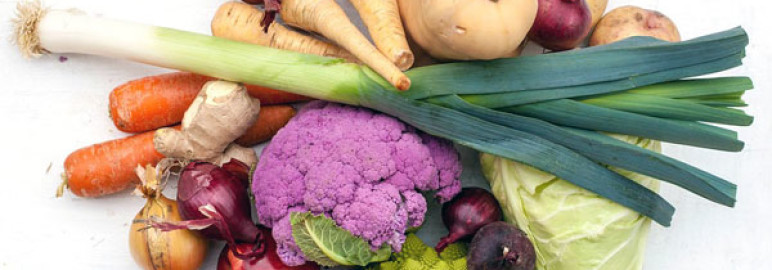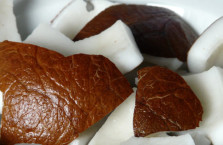By Dr. Mercola
The flu season is upon us.
Staying well while those around you sniffle and sneeze requires that you extract as much nutrition from your diet as you can, loading up on the foods that pack the biggest nutritional punch.
Avoiding processed foods, grains, and sugar will go a long way toward strengthening your immune system. However, you can do even more by selecting foods that are loaded with specific immune-boosting nutrients.
Eating a diet rich in the following foods will be far better for your health than loading up on handfuls of supplements, or worse yet, falling victim to vaccines that expose you to health risks far worse than influenza.
Below, I have outlined what I consider to be the absolute best foods you can eat to help protect yourself this season, although the list is certainly not exhaustive.
1. Unpasteurized Grass-Fed Organic Milk

Raw organic milk from grass-fed cows contains beneficial bacteria that prime your immune system and can reduce allergies. It is an outstanding source of vitamins, especially vitamin A, zinc, and enzymes. Raw organic milk is not associated with any of the health problems of pasteurized milk such as rheumatoid arthritis, skin rashes, diarrhea and cramps.
Raw milk also contains beneficial fats that will help your immune system.
Although raw milk availability is limited in the US depending on where you live, you can locate the source closest to you at RealMilk.com.
Whey Protein
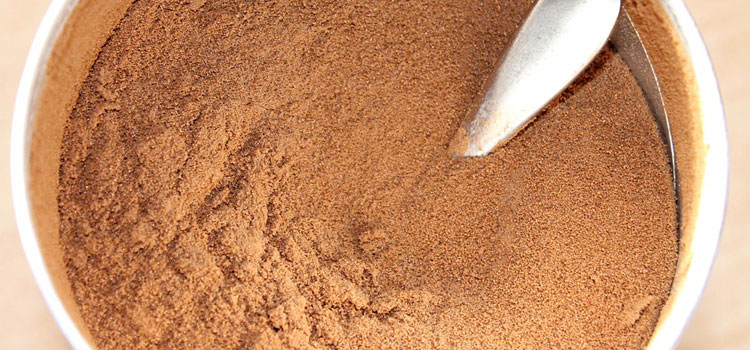
Even if you don’t have access to raw milk, you can use a high-quality whey protein that comes from grass-fed cows to receive much of the same health benefits
The protein in milk is whey protein. Whey is the liquid that separates from the curd during the production of cheese. When the liquid dries into powdered whey, the nutrients become concentrated, and it can be packaged and used in that form.
Whey protein can help you fight off colds and flu because it contains beta-glucans and immunoglobulins, which protect your immune system and support your body’s natural detoxification processes.
2. Fermented Foods
If you are serious about boosting your immunity, then adding traditionally fermented foods is essential.
One of the most healthful fermented foods is kefir. Kefir is an ancient cultured, enzyme-rich food full of friendly microorganisms that balance your “inner ecosystem” and strengthen immunity.
Besides kefir, other good fermented foods include natto, kimchee, miso, tempeh, pickles, sauerkraut, yogurt (watch out for sugar), and olives.
Friendly bacteria have a powerful, beneficial effect on your gut’s immune system, your first line of defense against pathogens, and aid in the production of antibodies
3. Raw Organic Eggs from Free-Range Chickens

Before you wrinkle up your nose, raw eggs are an inexpensive and amazing source of high-quality nutrients that many people are deficient in, especially high-quality protein and fat. I am a proponent of raw eggs because they have been so helpful to my own health.
As long as you have a good source for fresh, organic raw eggs, you need not worry about salmonella. To find free-range pasture farms, try your local health food store, or go to http://www.eatwild.com or http://www.localharvest.org.
4. Grass-Fed Beef or Organ Meats
This recommendation is only valid if you are a protein or mixed nutritional type as carb types really should not be eating beef. Grass-fed beef comes from cows that eat what they were meant to eat—grasses, not corn or grains. This results in far greater health benefits for you and for the environment.1
Grass-fed beef is very high in vitamins A and E, omega-3 fatty acids, beta-carotene, zinc, and CLA. CLA (conjugated linoleic acid, a fatty acid) is three to five times higher in grass-fed animals than grain-fed animals and is an immune system enhancer.
Don’t confuse “organic” with grass-fed, since many organically raised cows are still fed organic corn, which you don’t want. However, most grass-fed cows are raised organically. And if you can find organic AND grass-fed, that’s ideal.
5. Coconuts and Coconut Oil
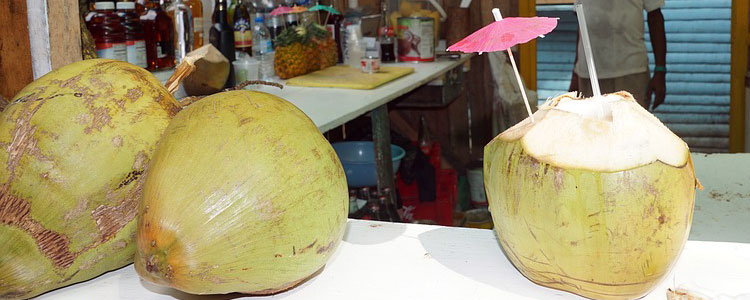
Besides being excellent for your thyroid and your metabolism, coconut oil is rich in lauric acid, which converts in your body to monolaurin. Monolaurin is the actual compound found in breast milk that strengthens a baby’s immunity
A great deal of research has been done establishing the ability of lauric acid to enhance immunity. This medium-chain fatty acid (MCFA) actually disrupts the lipid membranes of offending organisms
When selecting coconuts and coconut oil, make sure you choose organic ones that are unrefined, unbleached, made without heat processing or chemicals, and are non-GMO.
6. Locally Grown Organic Vegetables Appropriate for Your Nutritional Type

When it comes to fighting off pathogens, you simply can’t do any better than eating a variety of fresh, organic and preferably raw vegetables for the vitamins, minerals, antioxidants, and enzymes they contain. However , the amount and type of vegetables you should eat daily will depend on your nutritional type.
Make sure the veggies you choose are fresh. The nutrient value drops to practically zero once a fruit or vegetable is canned. For example, take a look at the ORAC value of peaches
ORAC Values
ORAC stands for Oxygen Radical Absorbance Capacity, and an ORAC unit or ORAC “score” is a standardized method of measuring the antioxidant capacity of different foods and supplements. The higher the ORAC score, the more effective a food is at neutralizing free radicals. The less free radicals you have, the healthier you will be.
Back to peaches
A raw, fresh peach has an ORAC score of 1,814. A can of peaches in heavy syrup has an ORAC score of 436, meaning that more than 75 percent of the antioxidants are lost in the canning process.
You can check the ORAC score for many different things at www.oracvalues.com. The higher the score, the better. Please be aware, though, that the total antioxidant capacity of a food alone does not determine its health benefit, which depends on how it is absorbed and utilized by your body. ORAC score is a useful guide, but it is only part of the picture.
7. Blueberries and Raspberries
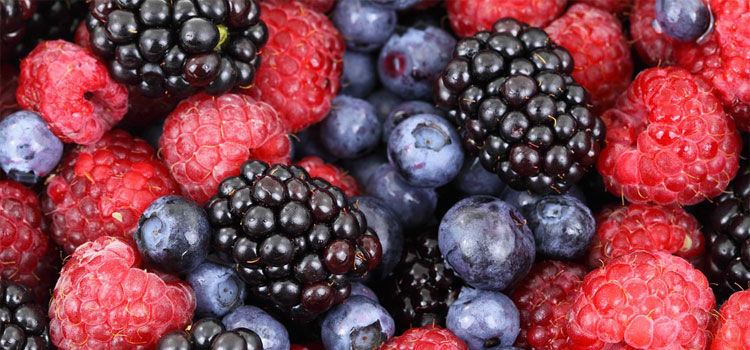
Blueberries and raspberries rate very high in antioxidant capacity (ORAC of 6,520) compared to other fruits and vegetables. Wild blueberries in particular are potent immune boosters. They contain powerful phytochemicals, such as anthocyanin, which is the pigment that gives blueberries their color. And they are lower in sugar than many other fruits.
8. Mushrooms
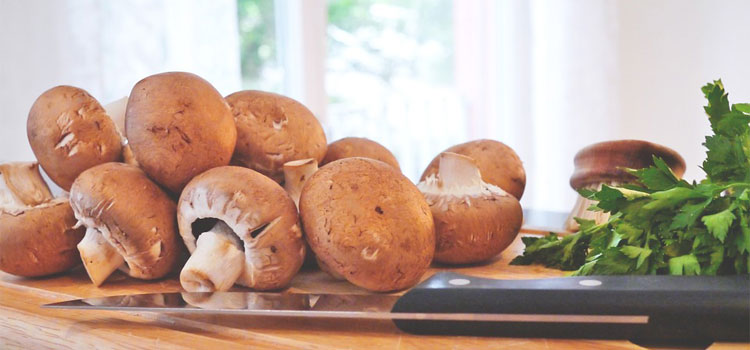
Mushrooms strengthen your immune system because they are rich in protein, fiber, vitamin C, B vitamins, calcium, and other minerals.
Mushrooms make up a large part of the fabric of the earth. According to Paul Stamets, one of the world’s leading authorities on the health benefits of mushrooms, one cubic inch of soil can contain eight miles of mycelium.2
Mushrooms also contain powerful compounds called beta-glucans, which have been long known for their immune enhancing properties. The beta-glucans in medicinal mushrooms (especially Reishi, Shiitake, and Maitake) are notable for their ability to activate/modulate your immune system.
Beta-glucan 3 enhances immunity through a variety of mechanisms, many of which are similar to those of echinacea or astragalus root. For example, it binds to macrophages and other scavenger white blood cells, activating their anti-infection activities.4 Numerous studies support this.
9. Chlorella
As foods go, chlorella is nearly perfect.
Chlorella is a single-cell freshwater algae that acts as an efficient detoxification agent by binding to toxins, such as mercury, and carries them out of your system. It is the chlorophyll in chlorella that makes it so powerful. Chlorophyll helps you process more oxygen, cleanses your blood and promotes the growth and repair of your tissues.
For a full review of all the benefits of this superfood, go to my chlorella page.
10. Propolis
Propolis is a bee resin and one of the most broad-spectrum antimicrobial compounds in the world, if not the broadest spectrum, according to master herbalist Donnie Yance. Propolis is also the richest source of caffeic acid and apigenin, two very important phenolic compounds that aid in immune response.
11. Teas

The two best types of tea for fending off microinvaders are Matcha green tea and tulsi tea.
Green Tea and Matcha
Matcha is the most nutrient-rich green tea and comes in the form of a stone-ground powder, completely unfermented. The best Matcha comes from Japan and has up to seventeen times the antioxidants of wild blueberries, and seven times more than dark chocolate.
Green teas are rich in polyphenols, in the form of natural chemicals called catechins. The most powerful catechin in tea is epigallocatechin (EGCG), which was found in one study to be 25 to 100 times more potent than antioxidant vitamins C and E. And Matcha is more than 100 times as potent in EGCG as regular brewed green tea.
Tulsi
Tulsi tea, coming from the holy basil herb, has been used for thousands of years in the Ayurvedic medicine of India. Not only is this tea loaded with antioxidants, but it has multiple positive health benefits, including supporting your immune health, memory, heart health and vision.
12. Herbs and Spices
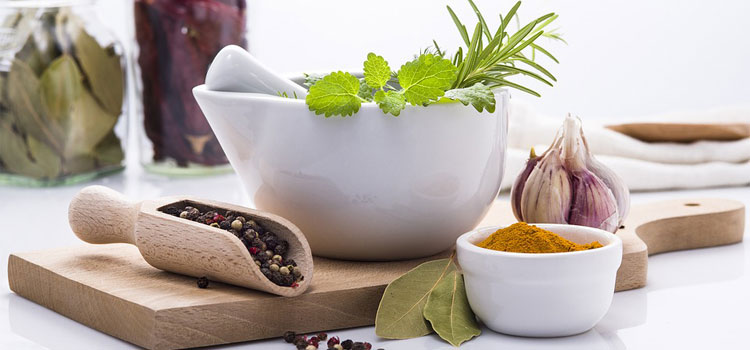
Herbs and spices are at the top of the list of high ORAC value foods on planet Earth.5 There are simply too many good ones to summarize here! So I will simply highlight a few that deserve special mention.
Garlic
Garlic, although not at the top of the ORAC chart (5,346), is incredibly beneficial to your immune system because it offers a triple-whammy: it’s antibacterial, antiviral and anti-fungal. You should be eating garlic every day. One of the best things about garlic is that bacteria, viruses, and yeast build up no resistance to it, unlike with synthetic antibiotics.
For optimal benefits, garlic should be fresh since the active ingredient is destroyed within one hour of smashing the garlic cloves. In other words, garlic capsules are basically useless.
Garlic contains allicin, a chemical that is anticarcinogenic. It also has been shown to lower LDL, lower total cholesterol, lower blood pressure, reduce your risk of blood clots and stroke, lower homocysteine, and even prevent insect bites –including mosquitoes and ticks.
Credit to Mercola for the health tips! Check their website for more information.

